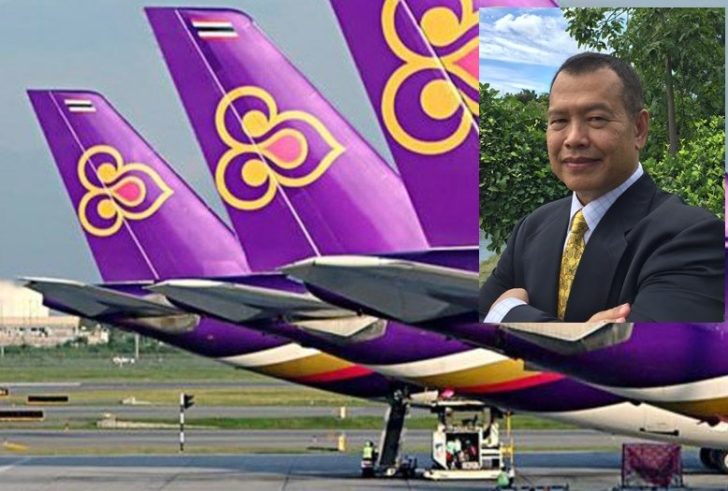| ผู้เขียน | Wirot Poonsuwan |
|---|
Imagine that Thai Airways International Plc sought an emergency loan from a bank to rescue it from a cash crunch and bolster its liquidity during the one year prior to its filing for rehabilitation on May 26, 2020. It also provided a normal package of loan security.
This emergency lending would lead to the presumption under rehabilitation law that both the bank and the debtor knew, at the time of making the contract, that other creditors are prejudiced by their action because the debtor is insolvent and is unable to pay its debts in full to all of its creditors.
By virtue of the disposition of the debtor’s property as security for the loan to secure enforcement by the bank ahead of other creditors, at a time when the debtor’s assets are insufficient to pay all of its debts, the loan agreement and security arrangements could all be deemed as undue preferences given to the bank over other creditors.
Such a prejudiced creditor would be entitled to motion the court to revoke the transaction.
Is the Bank Enriched or Deprived?
The fraudulent preference provision in the Civil and Commercial Code (“CCC”) penalizes a preferred creditor enriched from a preferential transaction, and the rehabilitation law brings in the one-year presumption of the enriched person and debtor’s knowledge of prejudice to other creditors.
The first issue to consider is whether the bank qualifies as an enriched person under the CCC.
According to a Thai ancient legal theory, a lender of a loan, such as a bank, cannot be regarded as a person enriched from a loan given to the debtor as the lender was in fact deprived of its property in disbursing the loan proceeds to the borrower. This theory categorically denies any chance of a loan agreement being considered as a fraudulent preference.
Owing to the relatively unsophisticated nature of the local economy in the last century, the old school also tended to believe that the only type of fraudulent transactions legal scholars could then put their minds on was land transfers. No other contracts!
Bank Preferred by Cash Collateral
The country has developed by leaps and bounds since then, and fraudulent preferences can be identified in all kinds of contracts in recent court precedents.
For a loan transaction, the outdated theory did not take into account security arrangements such as mortgages or pledges that literally dilute the debtor’s limited pool of assets in an insolvency to give a priority right of enforcement to the bank. This priority right is undeniably enrichment.
This is particularly so when the enrichment is buttressed by the modern-day cash collateral of a pledge of deposit where the bank can simply set off against the credit balance in the debtor’s pledged account to satisfy the outstanding indebtedness, beyond the reach of other creditors, in an event of default triggered by the rehabilitation filing.
Thai Courts Focus on Disposition of Debtor’s Assets
Many fraudulent preference cases that the Supreme Court has ruled on concern fraudulent transfers of land where the debtor has no other assets to pay off creditors.
Transfers of condos, automobiles, ships and shares can also be found in court precedents.
While the extreme cases of low prices and gratuitous dispositions were sure to prompt a judgment of fraudulent transfer, a number of cases have shown the court does not give weight to whether the enriched person pays a proper price for the transfer to the debtor. This might be attributable to the nature of the sale proceeds that is unsustainable and can evaporate quickly with creditors having no opportunity to share the cash.
Rather, for the most part, the court looks at what property is being disposed of by the debtor and whether there are enough assets left to satisfy all of its indebtedness.
Although there are no Supreme Court decisions directly ruling on whether a loan agreement can be a fraudulent preference, the court would look at the loan proceeds in the same way it does the transfer price. The giving away of the loan proceeds by the banks is unlikely to affect the court’s view of the transaction as fraudulent when the debtor has disposed of its limited assets as security for the loan.
Guarantee and Mortgage Have Been Ruled as Fraudulent
There are numerous court precedents on fraudulent transfers following the Asian financial crisis of 1997. It is one of the most litigated subjects in the Supreme Court.
For financial transactions, in 2012, the high court held that a land mortgage is a fraudulent preference. Five years later in 2017, a guarantee faced the same fate.
The same situation should apply to any bank guarantee Thai Airways gave to aircraft financiers as security for its obligations within that one year.
The enrichment by the overseas financiers is pronounced when they called the guarantee and were paid ahead of other creditors out of the security on Thai Airways’ default.
Any other loan security could equally be revocable: a plane mortgage, a plane pledge, a pledge of deposit, a setoff, an assignment of rights, a mortgage of machinery, a pledge of machinery, a pledge of automobiles and more.
When auxiliary security agreements can be ruled as fraudulent preferences, there is no reason why the main agreement that the security secures, the loan agreement itself, will not one day be decided by the court to be a fraudulent preference. It is just a matter of time.
Settlement with Foreign Airlines in Anti-Trust Cases
Thai Airways’ financial statements show claims from other significant airlines of the world exercising their right of recourse against the Thai carrier in relation to foreign anti-trust cases filed by various parties.
If Thai Airways had settled some of these claims during the one-year presumption period, those settlement agreements could also have been cancelled by the court, as a post-1997 Supreme Court decision ruled that a settlement agreement was a fraudulent preference.
Any creditor, Thai Airways’ employees included, who is prejudiced by the liquidity bank loans and their security, does not need to file a new lawsuit with Thai Airways as defendant No. 1 and the bank as defendant No. 2, as is normally the case for fraudulent preference litigation.
In rehabilitation, the injured creditor is required to request the planners or the official receiver to petition the Central Bankruptcy Court on its behalf to cancel the transaction and recover the lost assets back into the pool for the public good.
Wirot Poonsuwan is Senior Counsel and Head of Special Projects at Bangkok law firm Blumenthal Richter & Sumet and can be contacted at [email protected].










